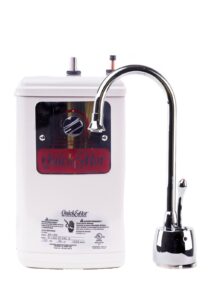
What are the 8 benefits of soft water?
 There are some very noticeable benefits that people receive after installing a water softener system:
There are some very noticeable benefits that people receive after installing a water softener system:
- No more soap scum on the shower walls, in the sinks and/or tubs.
- Your pots, pans, or silverware have not have anymore deposits or white film.
- You’ll see no more toilet bowl ring inside the bowl.
- Your clothes will be softer, brighter, and will actually last longer.
- Your hair and skin will be in better condition. Your need to put on a bunch of lotion or use a ton of hair conditioner can be eliminated.
- Drastic change in performance in plumbing, like pipes and water heaters–usually due to the decrease in limescale build up
- No more calcified shower heads
If you’re interested in these benefits give us a call to schedule an installation of your new water system.
What are my Options for Water Softeners?
There are a few ways to soften your water. The most common option is connecting a water softener to your current plumbing. Most softening systems use salt to assist in the removal of calcium and magnesium; the common culprits in hard water. The process called “ion exchange” is basically a trade of minerals. Most water softener systems have a tank filled with beads (the zeolite bed we mentioned earlier) that carry a negative charge. And as you probably guessed, calcium and magnesium carry a positive charge. The salt (a negatively charged ion) comes in to help remove the build up of calcium and magnesium in the ion bed allowing the system to continue to remove those minerals.
What About Salt for the Water Softener?
 Most softeners use salt to recharge the ion base. However, there are some systems that offer a “salt-less” alternative. These came out about 20 years ago and became quite popular. Some look to this option due to concerns with sodium intake. The issue is, they’re really not what they’re billed to be. A salt-free “softener” uses other methods to deal with some aspects of the hard water, rather than the traditional ion exchange method. This type of water softener is actually more of a water “conditioner” rather than true water softening. Or what some call descaling. It may stop minerals from forming or staining surfaces that the water comes across but it doesn’t truly remove the hard water minerals.
Most softeners use salt to recharge the ion base. However, there are some systems that offer a “salt-less” alternative. These came out about 20 years ago and became quite popular. Some look to this option due to concerns with sodium intake. The issue is, they’re really not what they’re billed to be. A salt-free “softener” uses other methods to deal with some aspects of the hard water, rather than the traditional ion exchange method. This type of water softener is actually more of a water “conditioner” rather than true water softening. Or what some call descaling. It may stop minerals from forming or staining surfaces that the water comes across but it doesn’t truly remove the hard water minerals.
The truth is you have to add some sort of mineral or chemical to remove the another. So salt-less soft water units may have some value for other reasons but as far as helping your hard water issues, not so much. These systems are also very expensive so beware of anyone that is pushing this sort of system. For a more detailed article about this click on this link: Water Softener of Water Conditioner?
Do I need a water softener or water filtration system?
Some of the things having a water softener can do:
- No more soap scum in the sinks
- No more bathtub rings
- Pots, pans, or silverware are clean, without film
- Toilet bowl stays free from hard water film
- Clothes washed feel soft and bright
- Faucets are spared the damage that deposits and minerals can cause
- Drastic change in performance in plumbing. PIpes, faucets, and shower heads last longer.
Is Soft Water Healthy?
Some people worry about getting the minerals they need through the water they drink. However, minerals are better absorbed via the food we eat. In fact hard water has been linked to kidney stones. A study suggests that, in the preventive approach to calcium nephrolithiasis, soft water is preferable to hard water, since it is associated with a lower risk for recurrence of calcium stones.
Associated Article: Effects of water hardness on urinary risk factors for kidney stones ->

With that, water also can carry substances that are not so helpful. Some homes have water filtration systems but they’re not the same as a water softening system. Softening units are great at removing hard water minerals, as we’ve mentioned earlier. However, if your water has problems different from just removing calcium or magnesium then you’ll need to consider a reverse osmosis system.
What About Reverse Osmosis?
That’s right! If your water has contaminants, chlorine, or fluoride that you want addressed you need a reverse osmosis system. It is not uncommon to install a softener and a reverse osmosis system to address all possible water issues. If installed properly and maintained these systems can prove to be a tremendous benefit to your family’s health and the welfare of your plumbing and appliances.
In addition to the reverse osmosis system that can be installed at the kitchen sink you can add a hot water machine. This provides instant hot water that can be used for tea, coffee, instant foods that use hot water, and so many other uses! It’s been a wonderful addition to my home and I would recommend it highly.
If you’re interested in all of the wonderful benefits that you can receive by having a water system installed, give us a call to schedule your installation.
(562) 246-9778.
Other Links:
8 Benefits of Soft Water

What are the 8 benefits of soft water?
 There are some very noticeable benefits that people receive after installing a water softener system:
There are some very noticeable benefits that people receive after installing a water softener system:
- No more soap scum on the shower walls, in the sinks and/or tubs.
- Your pots, pans, or silverware have not have anymore deposits or white film.
- You’ll see no more toilet bowl ring inside the bowl.
- Your clothes will be softer, brighter, and will actually last longer.
- Your hair and skin will be in better condition. Your need to put on a bunch of lotion or use a ton of hair conditioner can be eliminated.
- Drastic change in performance in plumbing, like pipes and water heaters–usually due to the decrease in limescale build up
- No more calcified shower heads
If you’re interested in these benefits give us a call to schedule an installation of your new water system.
What are my Options for Water Softeners?
There are a few ways to soften your water. The most common option is connecting a water softener to your current plumbing. Most softening systems use salt to assist in the removal of calcium and magnesium; the common culprits in hard water. The process called “ion exchange” is basically a trade of minerals. Most water softener systems have a tank filled with beads (the zeolite bed we mentioned earlier) that carry a negative charge. And as you probably guessed, calcium and magnesium carry a positive charge. The salt (a negatively charged ion) comes in to help remove the build up of calcium and magnesium in the ion bed allowing the system to continue to remove those minerals.
What About Salt for the Water Softener?
 Most softeners use salt to recharge the ion base. However, there are some systems that offer a “salt-less” alternative. These came out about 20 years ago and became quite popular. Some look to this option due to concerns with sodium intake. The issue is, they’re really not what they’re billed to be. A salt-free “softener” uses other methods to deal with some aspects of the hard water, rather than the traditional ion exchange method. This type of water softener is actually more of a water “conditioner” rather than true water softening. Or what some call descaling. It may stop minerals from forming or staining surfaces that the water comes across but it doesn’t truly remove the hard water minerals.
Most softeners use salt to recharge the ion base. However, there are some systems that offer a “salt-less” alternative. These came out about 20 years ago and became quite popular. Some look to this option due to concerns with sodium intake. The issue is, they’re really not what they’re billed to be. A salt-free “softener” uses other methods to deal with some aspects of the hard water, rather than the traditional ion exchange method. This type of water softener is actually more of a water “conditioner” rather than true water softening. Or what some call descaling. It may stop minerals from forming or staining surfaces that the water comes across but it doesn’t truly remove the hard water minerals.
The truth is you have to add some sort of mineral or chemical to remove the another. So salt-less soft water units may have some value for other reasons but as far as helping your hard water issues, not so much. These systems are also very expensive so beware of anyone that is pushing this sort of system. For a more detailed article about this click on this link: Water Softener of Water Conditioner?
Do I need a water softener or water filtration system?
Some of the things having a water softener can do:
- No more soap scum in the sinks
- No more bathtub rings
- Pots, pans, or silverware are clean, without film
- Toilet bowl stays free from hard water film
- Clothes washed feel soft and bright
- Faucets are spared the damage that deposits and minerals can cause
- Drastic change in performance in plumbing. PIpes, faucets, and shower heads last longer.
Is Soft Water Healthy?
Some people worry about getting the minerals they need through the water they drink. However, minerals are better absorbed via the food we eat. In fact hard water has been linked to kidney stones. A study suggests that, in the preventive approach to calcium nephrolithiasis, soft water is preferable to hard water, since it is associated with a lower risk for recurrence of calcium stones.
Associated Article: Effects of water hardness on urinary risk factors for kidney stones ->

With that, water also can carry substances that are not so helpful. Some homes have water filtration systems but they’re not the same as a water softening system. Softening units are great at removing hard water minerals, as we’ve mentioned earlier. However, if your water has problems different from just removing calcium or magnesium then you’ll need to consider a reverse osmosis system.
What About Reverse Osmosis?
That’s right! If your water has contaminants, chlorine, or fluoride that you want addressed you need a reverse osmosis system. It is not uncommon to install a softener and a reverse osmosis system to address all possible water issues. If installed properly and maintained these systems can prove to be a tremendous benefit to your family’s health and the welfare of your plumbing and appliances.
In addition to the reverse osmosis system that can be installed at the kitchen sink you can add a hot water machine. This provides instant hot water that can be used for tea, coffee, instant foods that use hot water, and so many other uses! It’s been a wonderful addition to my home and I would recommend it highly.
If you’re interested in all of the wonderful benefits that you can receive by having a water system installed, give us a call to schedule your installation.
(562) 246-9778.
Other Links:

